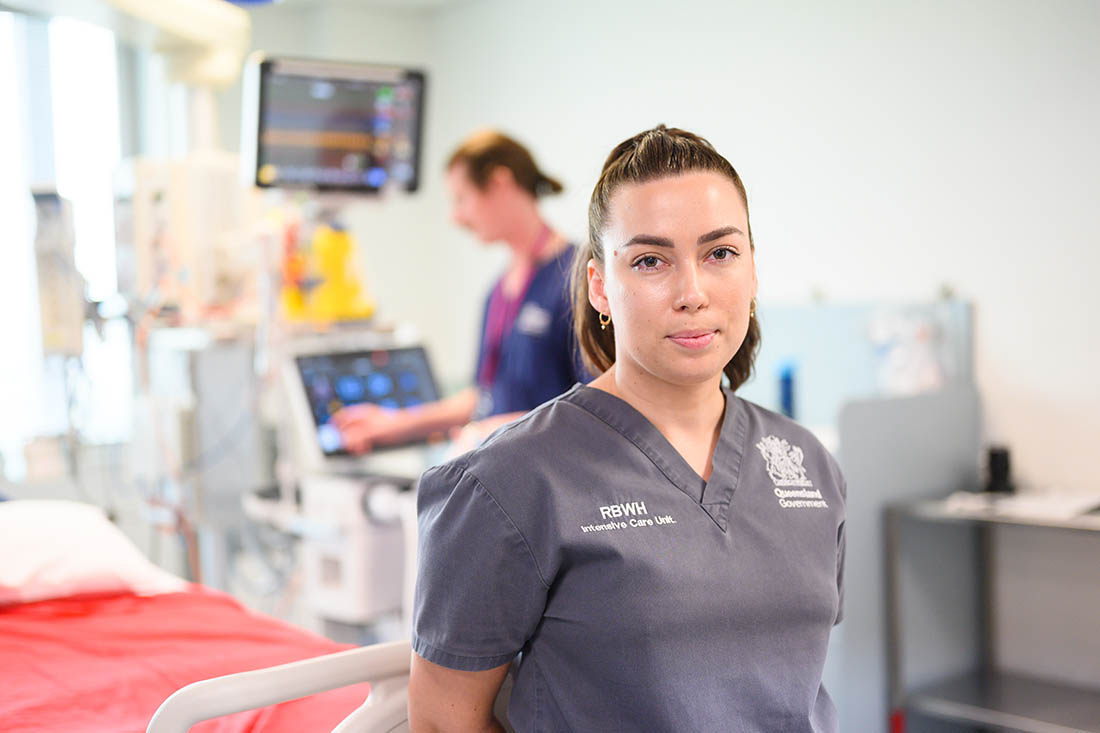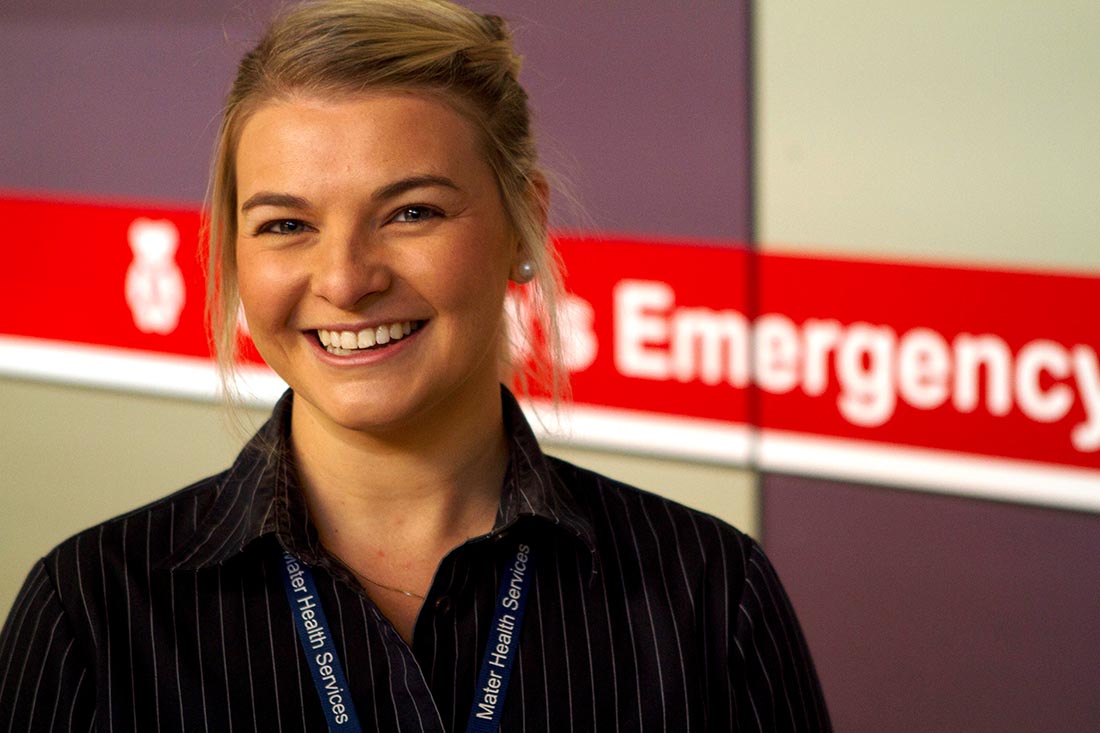QUT's School of Nursing has an established reputation as a provider of postgraduate programs that recognise and respond to priorities in clinical nursing practice and prepare professionals for specialist and leadership positions.
In consultation with industry partners, the school has reviewed its postgraduate programs to continue alignment with industry's need for graduates who demonstrate nursing leadership and advanced practice skills.
The comprehensive content emphasises clinical leadership in specialist nursing, improvement in practice and service delivery, and the socio-political aspects of contemporary nursing practice.
The Graduate Certificate in Nursing offers a short, focused program of study for professionals looking to upgrade their qualifications.
Our flexible course design means you can shape your course to suit your interests and career aspirations. Choose your major area of study from the list below or customise your degree with no major and a mix of units.
Cancer Nursing
Students develop competency in the practice of cancer nursing, examine major issues and trends in cancer nursing, plan appropriate strategies/intervention for client care and develop an understanding of research applied to cancer nursing practice.
You must:
- be currently working as a registered nurse at least 0.4 FTE (full-time equivalent) in a setting where care is delivered to cancer patients; and
- have at least 3 months FTE (full-time equivalent) experience in a cancer related field. Examples include medical and radiation oncology, haematology, medical-surgical, and community settings.
Primary Health Care
Students will expand their knowledge of the critical role of primary health care in providing proactive care, health promotion and self-management for individuals, families and communities. Students will also develop knowledge of current policies, frameworks, strategies and approaches of the prevention and management of chronic conditions in the context of their area of practice or interest.
This study area has no additional professional experience requirements.
Acute Care Nursing
Students complete studies in advanced health assessment and nursing practice, issues and trends in acute care nursing, and critically analyse the advanced concepts that underpin this specialist area. Students will initiate plans of care to address common needs/problems experienced by acute patients.
You must have 3 months FTE (full-time equivalent) minimum recent registered nursing experience (within two years). Examples include, but are not limited to, acute medical-surgical, rehabilitation, orthopaedic, community and residential, general practice, renal and chronic care settings.
Emergency Nursing
Students explore the key issues, trends, and challenges in emergency nursing scholarship and develop an understanding of research applied to emergency nursing practice. Students develop skills in patient assessment, planning, and implementation of health care in the emergency area.
You must:
- be currently working as a registered nurse at least 0.4 FTE (full-time equivalent) in an emergency setting; and
- have at least 6 months FTE (full-time equivalent) experience in an emergency setting.
Intensive Care Nursing
Students explore the theoretical, conceptual and practical knowledge required to provide effective nursing care for diverse and complex critically ill patients in the intensive care unit, an increasingly complex technological environment.
You must:
- be currently working as a registered nurse at least 0.4 FTE (full-time equivalent) in a level II (two) or III (three) intensive care unit, as defined by the College of Intensive Care Medicine of Australia and New Zealand (CICM), Minimum Standards for Intensive Care Units; or as accredited by the CICM for training in intensive care medicine; and
- have at least 6 months FTE (full-time equivalent) experience in an intensive care setting.
Paediatric and Adolescent Nursing
This program is designed for nurses working in acute or community settings to develop competency in the practice of paediatric nursing or child and youth health nursing. Students will examine major issues and trends in nursing scholarship and practice and develop an understanding of research in this area.
You must:
- be currently working as a registered nurse at least 0.4 FTE (full-time equivalent) in a setting where care is delivered to paediatric and adolescent patients;
- have at least 3 months FTE (full-time equivalent) experience within the field.
Gastroenterology nursing
Students develop advanced knowledge and skills in the practice of gastroenterology nursing. Students plan appropriate strategies and intervention for patient care and develop an understanding of research applied to gastroenterology nursing practice.
You must be currently working at least 0.4 FTE (full-time equivalent) and have a minimum of three months FTE experience in a setting where care is delivered to gastroenterology patients. Examples include gastroenterology wards or day clinics, endoscopy units/clinic, medical wards caring for gastroenterology patients.
Customised
Students customise their own degree by completing core units and choosing additional units from a list of electives that meet their career aspirations.
This option has no additional professional experience requirements.
QUT's School of Nursing has an established reputation as a provider of postgraduate programs that recognise and respond to priorities in clinical nursing practice and prepare professionals for specialist and leadership positions.
In consultation with industry partners, the school has recently reviewed its postgraduate programs to ensure continued alignment with industry's need for graduates who demonstrate nursing leadership and advanced practice skills. The comprehensive clinical content of the programs now also embraces the socio-political aspects of contemporary nursing practice.
Our programs offer students a supportive, flexible learning environment that integrates online technologies and promotes a socially collaborative community.
The Graduate Certificate in Nursing offers a short, focused program of study for professionals looking to upgrade their qualifications. Students can opt to major in one study area, or choose to complete a cross-specialisation by selecting units from a variety of study areas.


